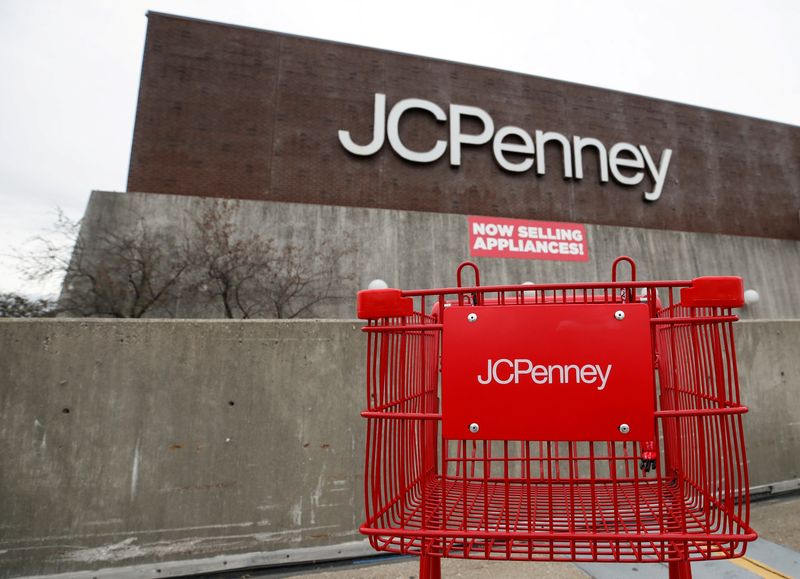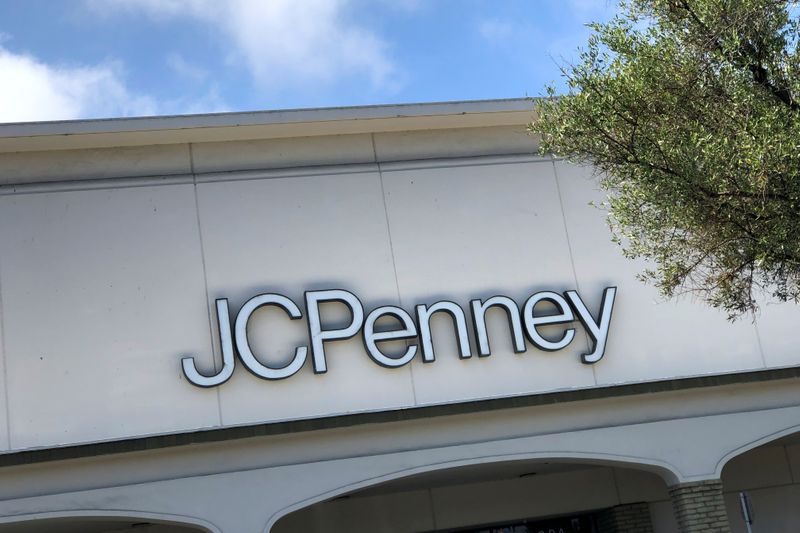By Mike Spector and Jessica DiNapoli
(Reuters) - J.C. Penney Co Inc (N:JCP) is preparing to file for bankruptcy protection as soon as next week with plans to permanently close about a quarter of its roughly 850 stores, becoming the latest major U.S. retailer to succumb to fallout from the coronavirus outbreak, according to people familiar with the matter.
A bankruptcy filing would cap a long decline for the iconic 118-year-old department store chain, which struggled with a nearly $4-billion debt load and competition from e-commerce firms and discount brick-and-mortar retailers even before the pandemic's onset.
The Plano, Texas-based company, which employs nearly 85,000 people, is in discussions with creditors for a so-called debtor-in-possession loan to bolster its finances while it navigates bankruptcy proceedings, the sources said. The loan could total between $400 million and $500 million, some of the sources said.
The timing of a bankruptcy filing could slip depending on how much time it gets from creditors, the sources said. J.C. Penney skipped a $17 million debt payment Thursday and only has five days to make good on it before defaulting. A 30-day grace period on a $12 million payment the company skipped April 15 ends next Friday.
J.C. Penney has not made a final decision on how to address its strained finances, and is also considering alternatives that include negotiating a deal with creditors outside of bankruptcy court or obtaining additional financing, the sources said. The sources spoke on condition of anonymity to discuss confidential deliberations.
J.C. Penney declined to comment.
While J.C. Penney aims to reorganize and emerge from bankruptcy protection, it plans to permanently shutter roughly 200 stores, a figure that could fluctuate depending on negotiations with creditors, the sources said.
Under one plan being discussed, J.C. Penney would emerge from bankruptcy as two separate companies, the sources said. One would own some of the company's real estate and serve as a landlord to the other entity operating the retailer's business, they said. Creditors, many of them Wall Street hedge funds, would control the businesses in exchange for forgiving debt, they said.
J.C. Penney's online sales have not been enough to compensate for the significant losses it has incurred while keeping stores closed across the United States in response to lockdowns aimed at curbing spread of the coronavirus.
While the company has enough cash to survive in the coming months, it faces a $105 million debt payment due in June and about $300 million of annual interest expenses. More than $2 billion of debt comes due in 2023.
J.C. Penney Chief Executive Jill Soltau told customers in a Thursday email that stores have started to gradually reopen with precautions such as Plexiglass shields at registers and limited crowds.
Retailers are bearing a significant brunt of the economic fallout from the pandemic as sales all but evaporate. Just this week, luxury department store chain Neiman Marcus Group and clothing retailer J. Crew Group Inc filed for bankruptcy protection.
In April, the U.S. economy lost 20.5 million jobs, the steepest plunge since the Great Depression, the Labor Department reported on Friday.
IN NEED OF TURNAROUND
J.C. Penney opened its first store in Wyoming in 1902 and called it "The Golden Rule," a reference to what the retailer saw as its standard for customer service, according to its website.
The e-commerce revolution that took hold in the 21st century eroded J.C. Penney's business much as it did other traditional retailers'. The company now also faces fierce competition from discount chains including TJX Cos Inc’s (N:TJX) Marshalls and T.J. Maxx chains.
J.C. Penney spent years trying to recover from a failed transformation spearheaded by former CEO Ron Johnson, the one-time pioneer of Apple Inc's (O:AAPL) retail stores.
Johnson launched expensive renovations of J.C. Penney locations and eliminated coupons, resulting in a customer backlash that led to plunging sales. He was replaced in 2013, and a revolving door of executives followed before Soltau took the helm in late 2018.
J.C. Penney had recently made some strides in its turnaround attempt, meeting or exceeding guidance on financial objectives for 2019 and improving sales at some stores.
Before the pandemic, J.C. Penney hoped to persuade creditors to give it more financial breathing room, as Soltau tried to forge a turnaround focused on the company's roots as a seller of affordable apparel for middle class families.

But discussions with creditors earlier this year did not win J.C. Penney any concessions, the sources said. The coronavirus outbreak prompted the company to draw $1.25 billion from its revolving credit line and eventually start making bankruptcy preparations.
